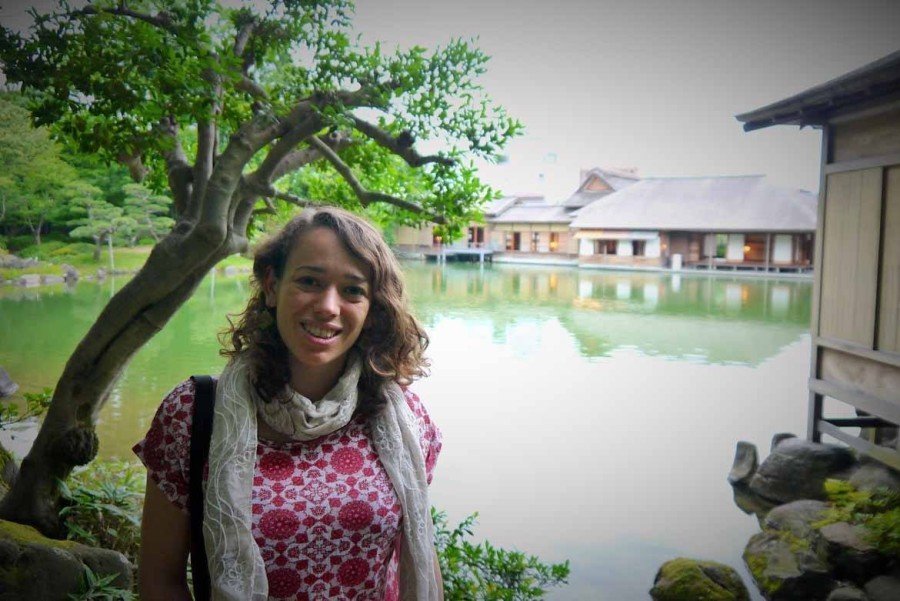Like this post? Help us by sharing it!
Sophie is a travel consultant in our Bristol office, and is always thinking of new ways to be a bit more green. Here, she explains how you can reduce your environmental impact when travelling to Japan.
2016 is my year for going green. I’ve swapped my car for a bike, I eat a nearly vegetarian diet and I’ve committed to not flying in 2016. This is all in an attempt to decrease my carbon footprint and have a wider view of how my lifestyle impacts the world today in the future. As someone who loves travelling to far-flung places, this challenge has surprised some of my family, friends and colleagues!
Last year I was not on a no-flying year and instead was lucky enough to return to the country I lived in for two years and familiarise myself with our top destinations, our favourite accommodation, and to experience being part of one of InsideJapan’s group tours. Needless to say I had a great time and fell in love with the country all over again. During the trip I kept a watchful eye out for little ways that I could reduce my carbon footprint whilst travelling to and in Japan. Here are a few ways you can follow my lead and go green in Japan:
1. Offset your flights
I chose direct flights from London to Tokyo that would emit less C02 than flying via another airport to Japan. I also offset my flights with an online carbon-calculator. The one I used calculated that the 9,601 km I travelled by air produced 2.1 tonnes of CO2. In contrast, flying via Dubai would produce 3 tonnes of C02 per person. To offset this, I paid £32 for this money to be spent on projects dedicated to manage natural forests around the world with the World Land Trust, one of many online carbon calculators.
2. Reduce unnecessary washing in hotels
When I was staying in hotels for more than one night, I made sure to follow the instructions they gave about how to leave the bed sheets and towels so they weren’t washed everyday. I was pleasantly surprised that nearly every hotel I stayed at had one of these signs describing their ‘Save the Earth’ policies.
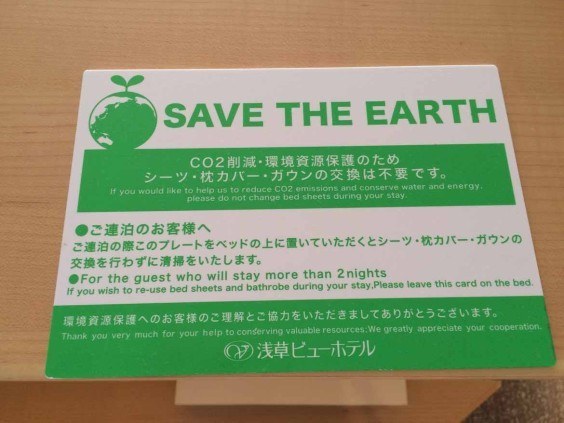
I also tried to have short showers, instead enjoying bathing in public onsen (hot spring baths), something everyone must try by the way! (Read this to find out why).
3. Avoid eating endangered species
When I was in Japan I stuck to a pescatarian diet, although I tried to eat as vegetarian as possible. I really enjoyed zaru soba (buckwheat noodles in cold broth with fried tofu on top) as a light and refreshing lunch.
When I did eat seafood meals I tried to avoid species that are on the vulnerable or endangered lists such as Bluefin tuna (maguro) and freshwater eel (unagi). Even though both of these loved foods can be bought at any supermarket or restaurant in Japan they are on the International Endangered Species list.
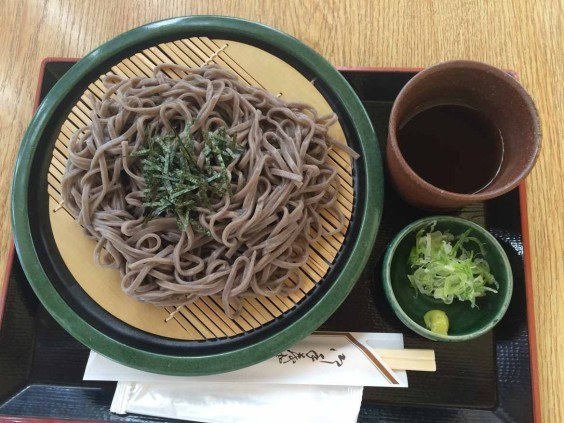
For more information on being vegetarian, pescatarian, or vegan in Japan – read this.
4. Choose public transport
Japan has the best public transport network in the world and it’s a joy to travel trains, buses and subways alike. I was especially impressed with the Narita Express train that took me back to Narita in 90 minutes in comfort and with views of Tokyo Skytree to admire as well.
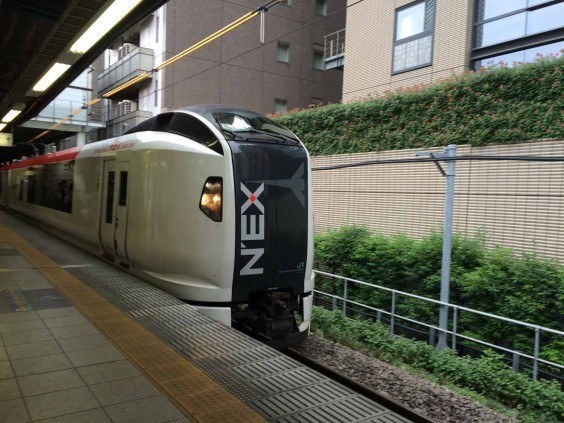
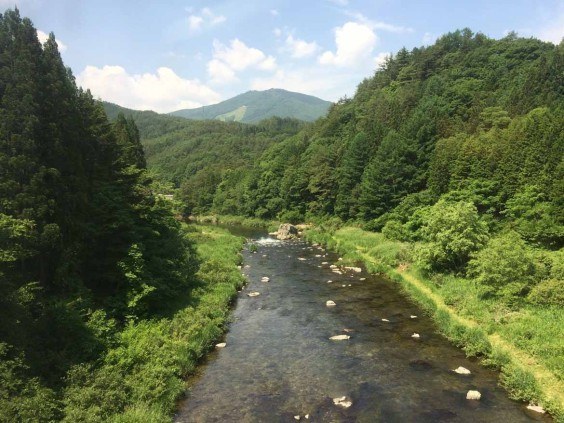
5. Support the traditional arts
There is a real risk that Japan’s wealth of arts, crafts and traditions could become a thing of the past, as they are being passed down the generations less and less. At the Women’s Association of Kyoto, they are training housewives in these traditions and offering them to tourists to keep them alive.
My colleague and I enjoyed a calligraphy lesson before being dressed in a kimono and learning how to conduct a tea ceremony. Not only was it a highlight of my trip, but by partaking in these experiences Japanese traditions will be passed on from teacher to teacher, keeping the skills of origami, calligraphy, tea ceremony, taiko drumming and ikebana from becoming history.
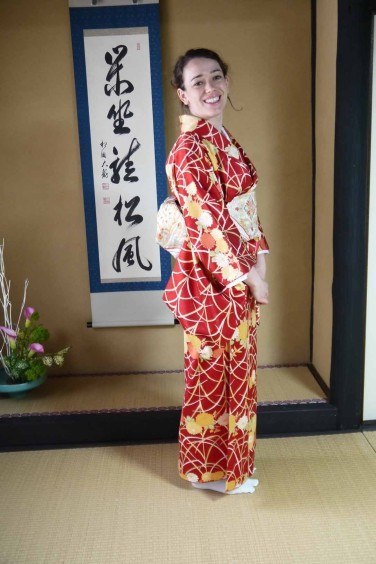
More tips for a sustainable holiday
If you’re interested in planning a sustainable holiday to Japan, here are a few things to bear in mind:
- Be respectful and polite to Japanese people. If you are travelling on one of our Small Group Tours you will have a tour leader there to guide you in Japanese etiquette and culture. As they have led many tours before, they will know many of the local people and you’ll notice they treat them with the utmost respect.
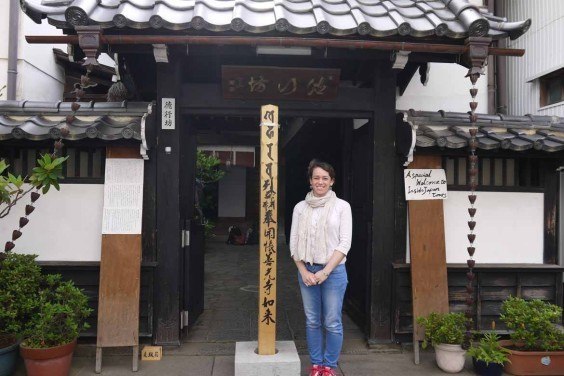
- Learn the basics in Japanese, so you can impress your Japanese hosts. Even just perfecting konnichiwa (‘hello’) and arigato (‘thank you’) will bring a smile to your Japanese host. Ask your travel consultant to include a Japanese lesson when you arrive in Japan to pick up the basics.
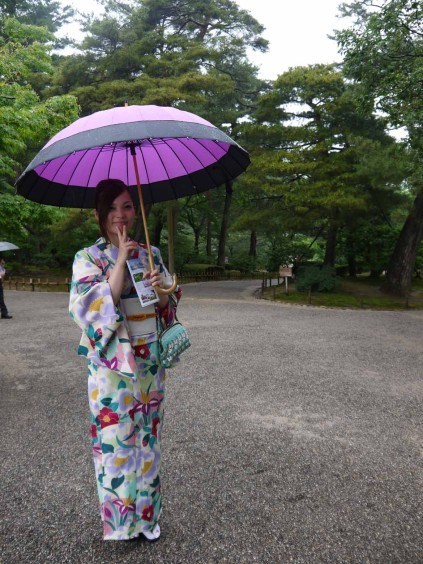
- Plan to use public transport wherever possible, and avoid domestic flights when you could take a train. If you do plan to drive in Japan, we recommend you hire a hybrid car like the Toyota Prius, one of the most fuel-efficient vehicles to drive.
- Reduce your energy consumption in your hotel. Unplug your mobile devices at night, reduce or turn the air conditioner off when possible and don’t waste water having long showers. Avoid using their disposable toiletries that will only be thrown away the next day and bring your own.
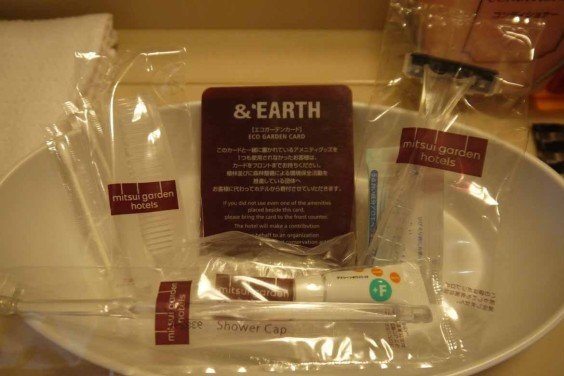
- Reduce your rubbish. Take your own plastic bottle and reuse and recycle wherever possible. If you can buy your own pair of chopsticks, these will be very useful for eating those bento lunch boxes on the train! Bring your own cloth bag and refuse convenience store plastic bags where possible.
- Although sushi may be on the top of the list of foods you want to try in Japan, make sure you’re not eating endangered seafood. Avoid all types of tuna, as their stocks are dangerously low, as well as fresh water eel (unagi). To get the definitive sustainable sushi guide, download the Seafood Watch app, which has the English and Japanese names for recommendations of fish to eat and those to avoid.
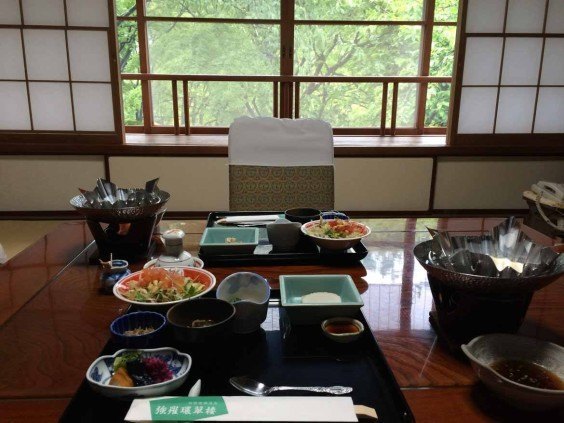
- Ask your travel consultant for recommendations for independent and eco-tourist accommodation.
Sustainable travel is all about making simple choices that, when done collectively, can make all the difference. Happy green travelling folks!
If you’re interested in a trip to Japan, just contact one of our Japan experts to begin planning your holiday.


